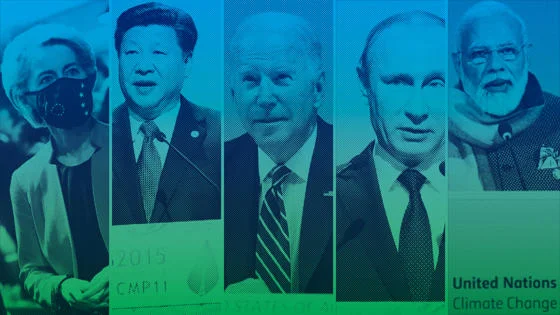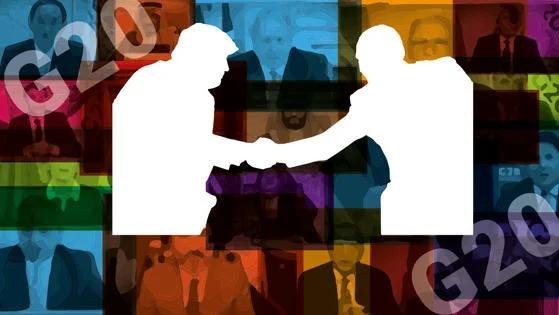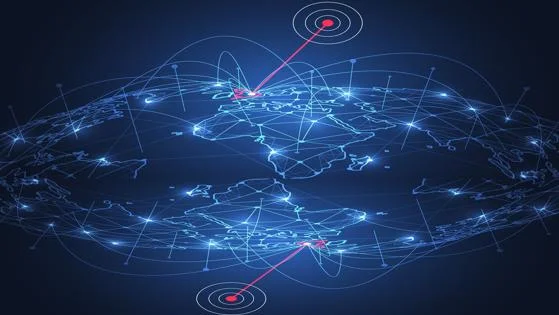Rising powers and their desire for status

Contents
Imagine you are becoming increasingly successful in your work and want to join a powerful club in recognition of your growing status. To achieve this, you might make some concessions that are against your material interests. However, for your cooperation, you expect to be treated as an equal within the club and have access to leadership positions. If denied this, you might reject the club or perhaps seek to reframe its rules or leadership criteria.
Now, if you extrapolate this behaviour from the individual to the country level, you have a basic example of what Dr Rohan Mukherjee calls "Institutional Status Theory" (IST).
Rising powers
The desire for status is a basic human motive.
This hypothesis, put forward in Dr Mukherjee’s new book, Ascending Order: rising powers and the politics of status in international institutions, is used to explain the conditions under which rising world powers, like China and India, will engage in different strategies, like cooperation or competition, to attain or maintain status in the international order.
As part of the theory, he argues that simply benefitting economically from international institutions such as the World Bank is often insufficient for rising powers. They want to be treated fairly and recognised as symbolic equals.
"As they rise, states develop major-power identities – they see themselves as important actors in the international order and seek recognition of this identity in the design and functioning of the order itself. The desire for status is a basic human motive," he explains.
The theory suggests that when a rising power is faced with an institution that is relatively open and procedurally fair, it will be more likely to cooperate with its rules to earn status and symbolic equality, even if some of those rules are against its material interests.
Cooperate first, challenge later
To demonstrate this, Dr Mukherjee discusses Japan’s approach to the Washington Conference of 1921-1922. "Although Japan faced a growing threat to its interests from the US in the Western Pacific, it accepted greater restraints on warship construction in order to maintain its access to the great-power-club alongside Britain and the US, as part of the ‘Big Three’, at the Conference."
Alternatively, if an institution is closed and procedurally unfair, the rising power will challenge the institution as a way of asserting its own status. Several years after the Washington Conference the US Immigration Act of 1924 unprecedently banned Japanese immigration to America on racial grounds. This was seen as a major betrayal of Japan’s sacrifices at the Conference for the sake of international order and led to Japan’s subsequent rejection of the Washington system.
Throughout history the US itself was once in a similar position. In the early 19th century, as a rising power, it sought equal recognition with countries such as Britain and France. To try and attain this, the US put forward a treaty outlawing private warfare at sea. The aim was to make a lasting contribution to international law thus boosting their status.
The countries that have positions of power and prestige don’t want to give it up.
However, the proposal was rebuffed by European states only for Britain and France to subsequently introduce these very rules in the Declaration of Paris 1856. This was a major concession to the American position but with an added provision making privateering illegal. With a small navy, the use of private vessels was America’s only realistic route to becoming a big naval power at the time. Feeling betrayed that the principles they had called for had been included in this new agreement alongside a new provision that would deny them future greatness, America rejected the Declaration even though it would have been in their interest to sign.
These are extreme examples where states either cooperate with or reject the global order. In between these positions, states might try other tactics to ensure their status is recognised. For example, if an institution is relatively closed but fair, a rising power will try and expand the criteria for institutional leadership. If it’s relatively open but procedurally biased towards the great powers, a rising power will seek to reframe the rules, so it is on a more equal footing.
Responsible actors
So, what factors prevent states from accessing leadership positions in the international order today? "There are two factors," explains Dr Mukherjee. "Inherently, there is a structural problem in that the countries that have positions of power and prestige don’t want to give them up.
"Secondly, countries like the US which lead many of these institutions look to countries like India and China to act as ‘responsible global actors’. They say: if you act responsibly, you can be a member of this elite group of countries that run the international order. However, it’s a chicken and egg problem as these countries say without membership, they don’t have an incentive to act responsibly. Why should they defend an order that’s not theirs? A lot of the tension we see in the international order comes from these dynamics."
Without membership… (countries) don’t have an incentive to act responsibly. Why should they defend an order that’s not theirs?
Indeed, this theory can be used to explain why up until recently China and India have supported or avoided criticising Russia’s invasion of Ukraine. Dr Mukherjee suggests that neither country was inclined to support a global order that denies their status aspirations and over which they feel little ownership.
That said, there is a limit to how far they are both prepared to go as economic considerations start to compete with status concerns. "There are diminishing returns to supporting an actor that is undermining the status quo. There is a sense that Russia is damaging the international order in a way that India and China don’t want. Instead, they want to reform the order so they get more recognition."
Going forwards, the great powers may need to be more accommodating to the status aspirations of rising powers as they won’t wait indefinitely. As Dr Mukherjee warns: "Neglecting the status concerns of rising powers can lead international institutions to inadvertently undermine their own objectives, sometimes with disastrous consequences."
Dr Rohan Mukherjee was speaking to Charlotte Kelloway, Media Relations Manager at LSE.
Download a PDF version of this article




